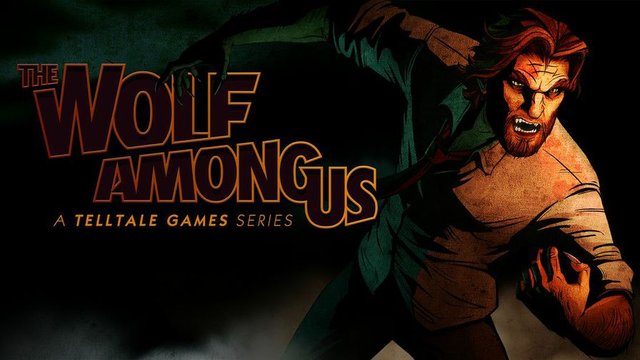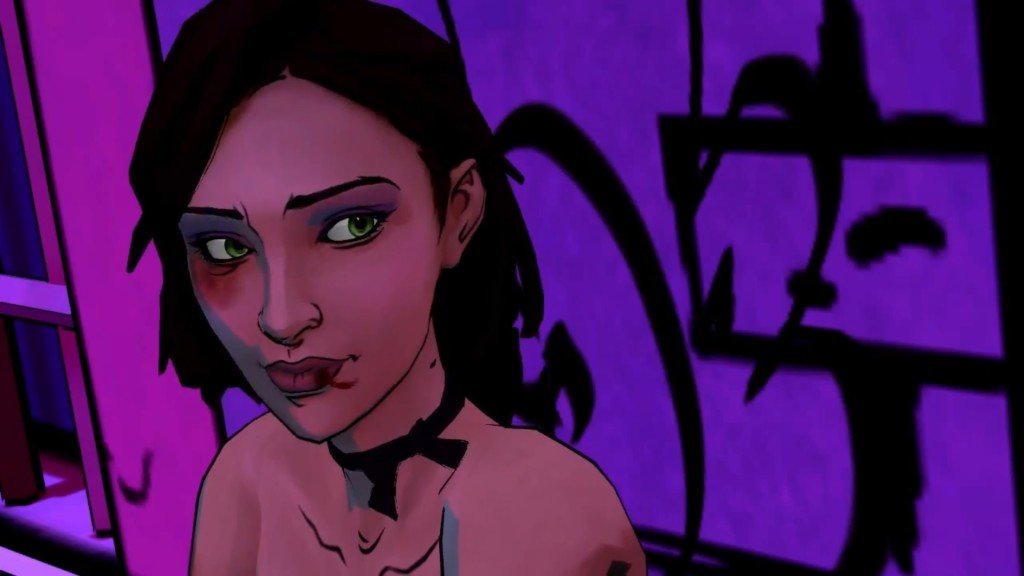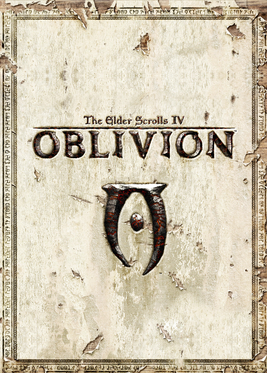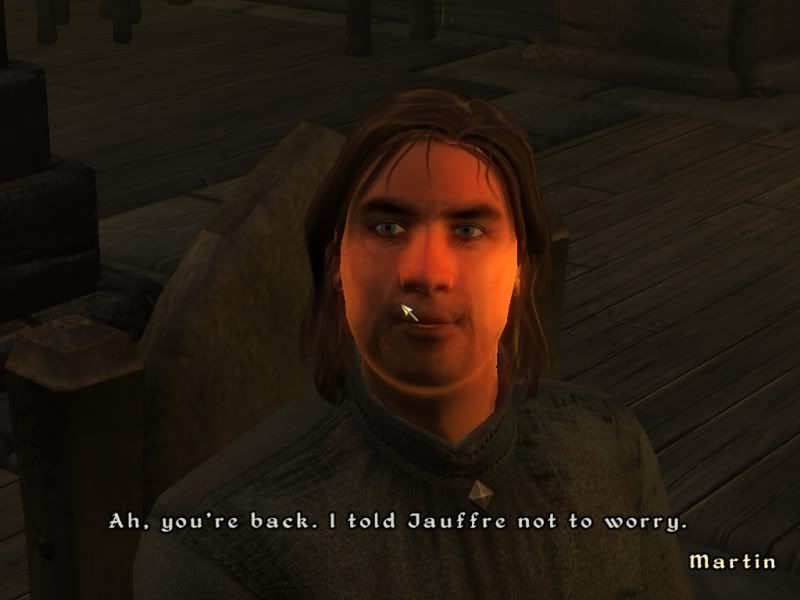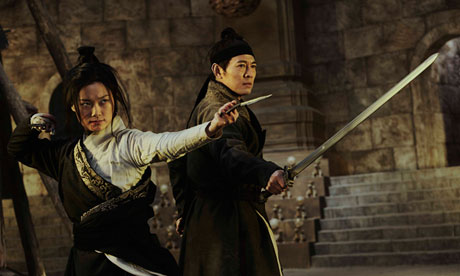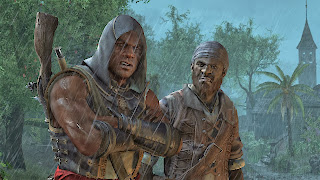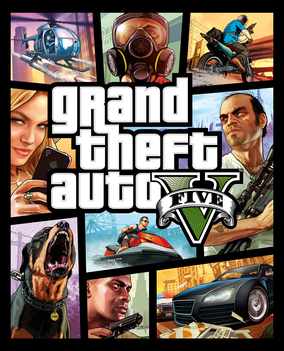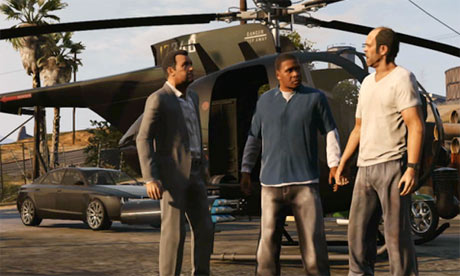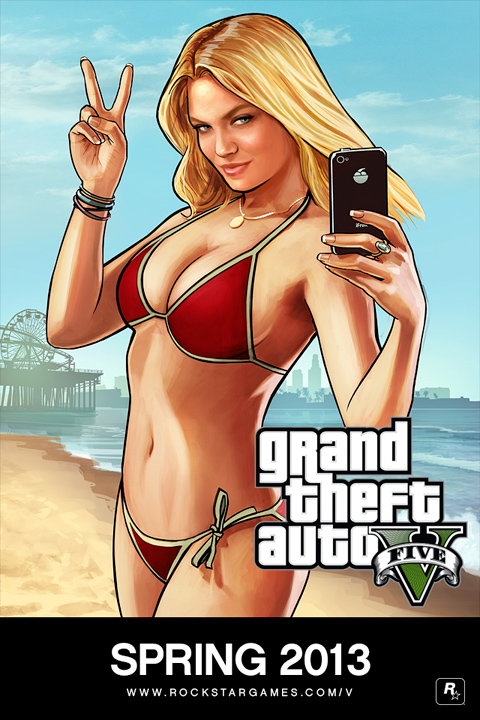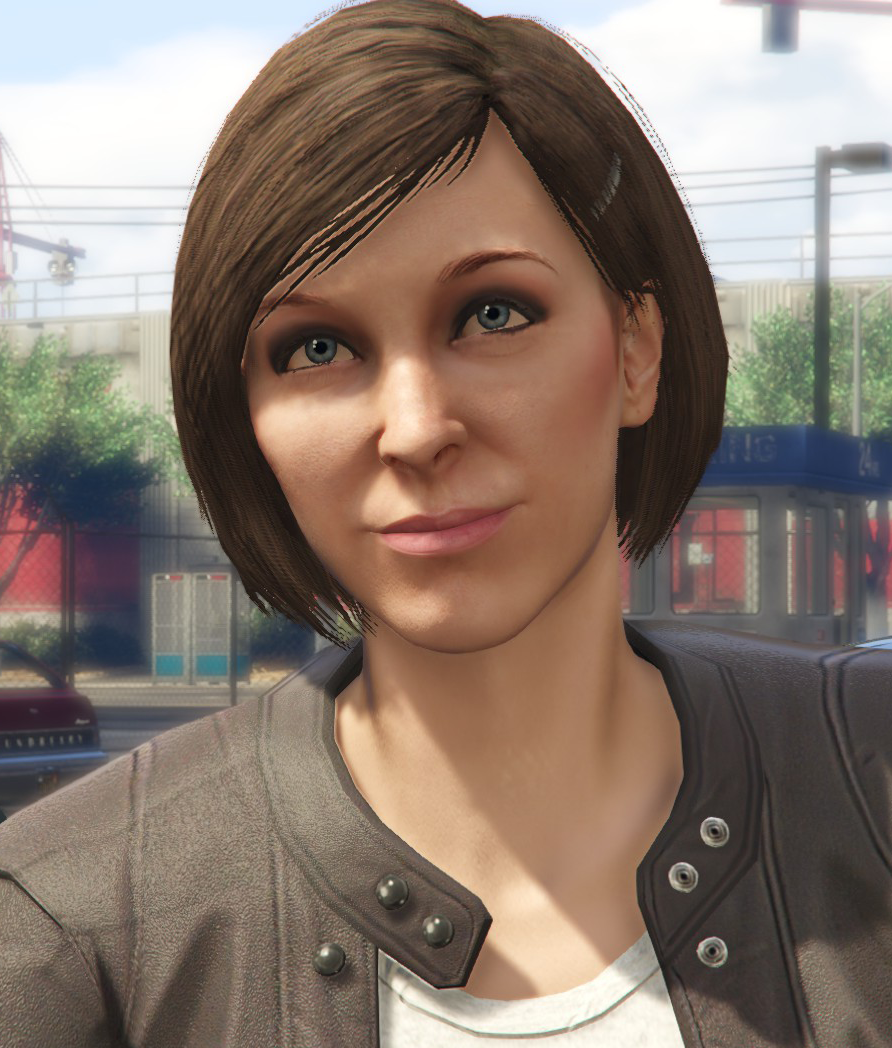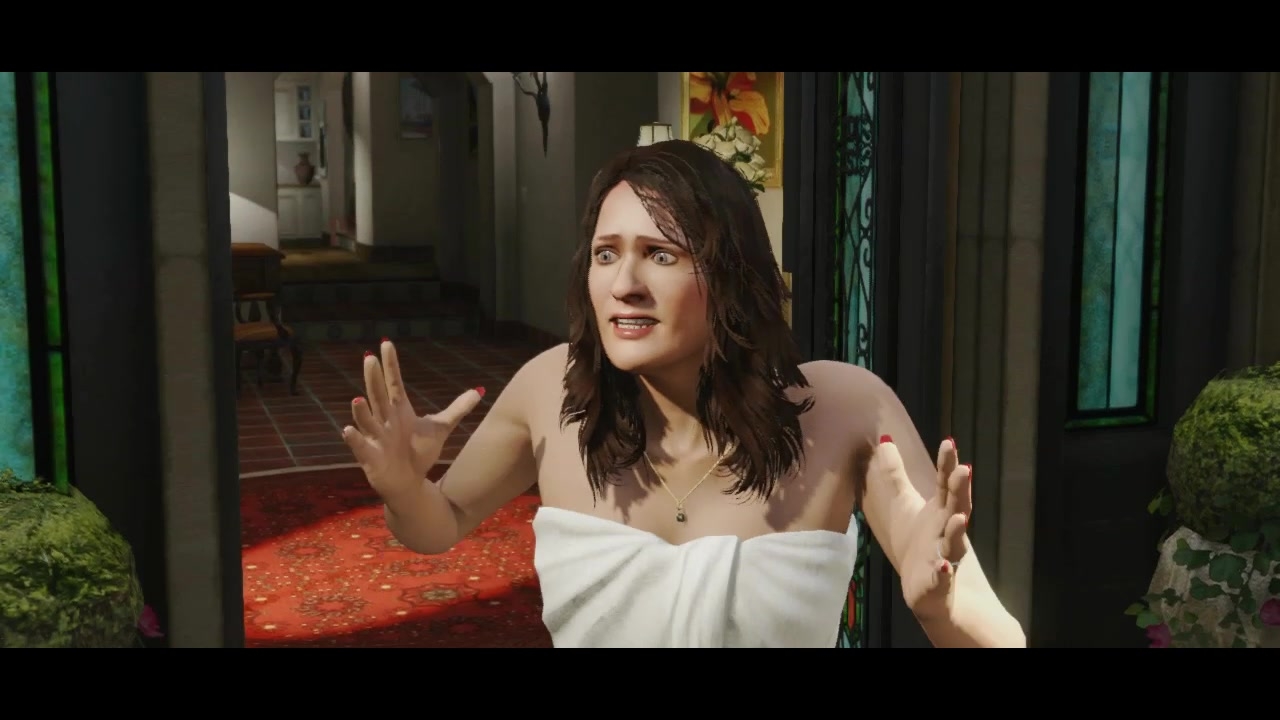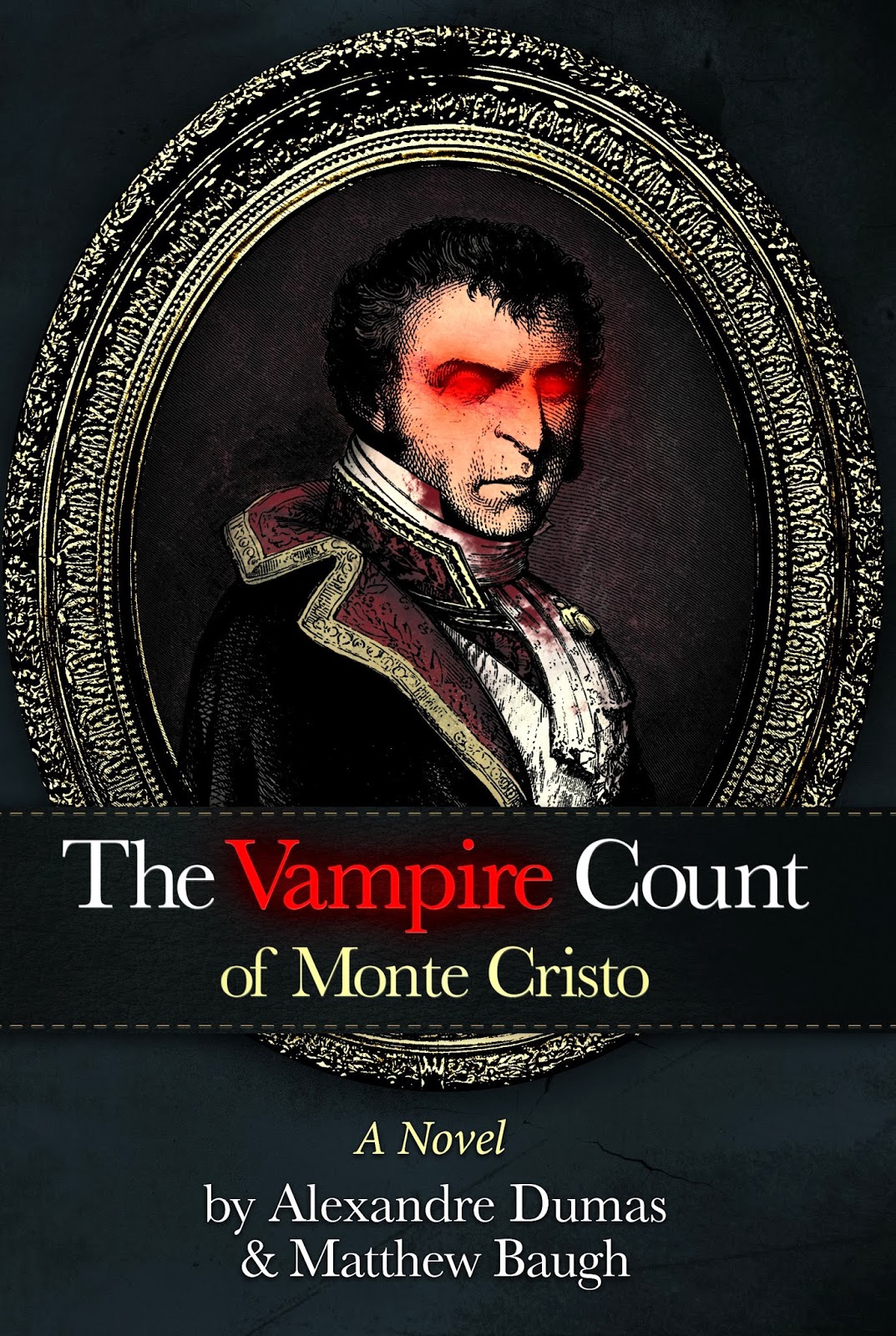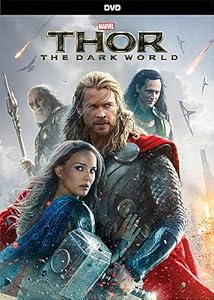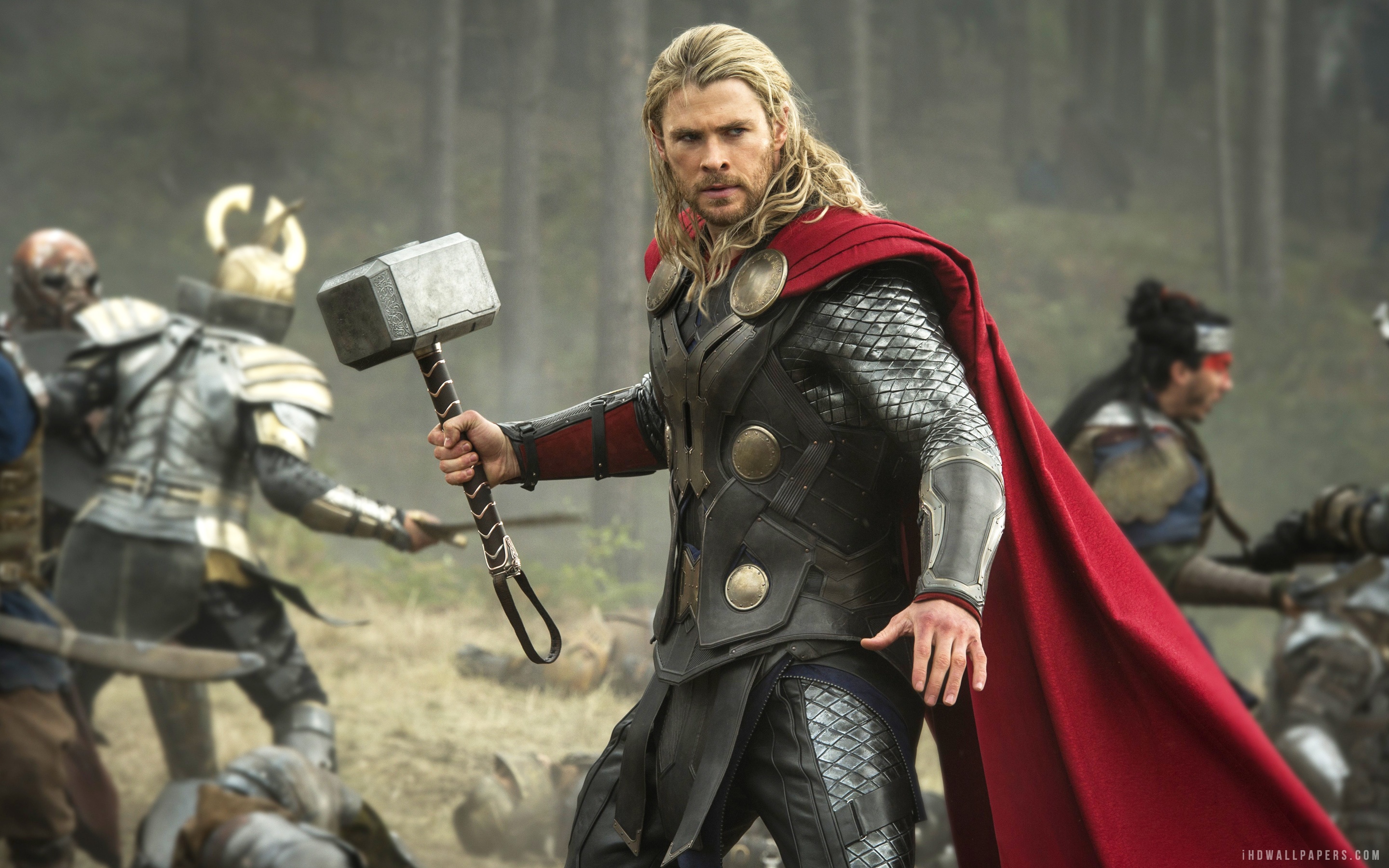Warning - this essay will contain spoilers for Grand Theft Auto V. Grand Theft Auto is a series which is no stranger to accusations of sexism and misogyny. The original "prostitute refund" controversy, where you have sex with one before killing her to retake your money, was one of the early means by which Jack Thompson mischaracterized the series as a "murder simulator." Worse,
Grand Theft Auto 3 ended with the possible execution of Maria Latore after she begins discussing her new life with Claude. This is in addition to the games including a bevy of strip clubs, psycho ex-girlfriends, and victimized housewives.
On my end, I've always felt
Grand Theft Auto was a series with slightly progressive attitude to the double X chromosome set. At least compared to the rest of the video game industry. Women are never prevalent in GTA's character roster and are, more often than not, objects of lust. However, Catalina and Asuka were major figures in their respective games. GTA IV lacked female villains but possessed an ample number of upper-class professionals to round out the prostitutes and strippers. I even maintain a special fondness for Mercedes Cortez who has no role in
Vice City other than kinda-sorta being Tommy's girlfriend before turning to porn.
![]() |
| Not appearing in this game. |
In short, I've always liked the fact Rockstar has bothered to give the women of their games voices. Accusations of sexism may have a ring of truth but this is in an industry where there are hundreds of games where women wear fetish wear yet have no personalities and the vast majority exist as the hero's girlfriends --Rockstar stands ahead of the curve.
So, what about
Grand Theft Auto V? What is its stance on women? Are they treated well in the game? Are they dismissed as sex objects or shrill harpies? Are they simply as bad as the men in the game (who are boorish at best and psychopaths at worse)? Are there a mix of good and bad elements which need to be taken together? This essay will attempt to answer that objectively, coming from a long time feminist as well as GTA fan.
Before I begin I should clarify what I am looking for. I'm not looking for positive female characters in the game. Looking for positive characters of either sex in GTA is missing the point of the games. They're a very colorful set of Noir games, where there is no good and everyone is one sort of scumbag or another. Kate McReary is, arguably, the only positive character in the entire series and she's boring compared to the colorful characters who surround her.
![]() |
| It's kind of hard to classify a character feminist or not when she's torturing a man just as much as the men. |
No, instead, I'm going to handle the portrayal of women in the game and ask if they are defined by more than their gender and stereotypes. Likewise, I'm going to examine whether the game is sexist or whether they're portraying a sexist world. The latter is necessary if one is satirizing sexism but not sexist itself. Quite the opposite.
The world of Los Santos is a hyper-stylized and exaggerated depiction of Los Angeles. Sexism is prevalent throughout the setting but not necessarily
supported. When aging movie producer Solomon Richards laments the loss of three secretaries he was having sex with, it's meant to reflect both his fall from grace and the creepy way he merged material success with sexual prowess. Radio personality turned talent show contest host, Lazlow Jones also highlights how the 'perks' of being a celebrity include sex and how it goes away as you grow older and less relevant.
Yet, curiously, GTA V is one of the few games which doesn't
normalize this. Major character Tracey de Santa is both annoying and obnoxious but an examination of her storyline reveals the tragic underpinnings to her life. Tracey was raised in a city where fame is all everyone ever aspires to and the only commodity she has is her body. By making the character a protagonist's
daughter, the game lessens her sex appeal while illustrating how degrading the whole thing is.
![]() |
| A peverted middle-aged man with a schoolgirl is treated as creepy. This is actually something new for video games--elsewhere, Lazlow would be the hero. |
Tracey is walking into a life of casting couches, subservience, and pornography with her eyes wide open. One might argue this is her choice but the game shows Tracey is neither mature enough to understand her actions' consequences nor reaching her full potential. It's not that Tracey isn't allowed to enjoy sex or even that pornography is wrong, it's that she's doing both out of a desperate need for attention. So, already, I'm inclined to note Rockstar is better aware of the exploitative nature of the system than most video game developers.
The next major female character of the game is Amanda de Santa, Michael's wife. Amanda is a character who has compelled many a gamer to want to swear off marriage. As a parody of an over-the-top nagging wife, Amanda makes Michael's life a living hell. Virtually all of Amanda's dialogue is never-ending stream of insults, barely letting up until the end of the game.
![]() |
| Her eyes terrify me. |
The game has a more nuanced depiction of her than it could have been, however, illustrating Amanda's complaints are largely spot-on. She's deeply unhappy with Michael de Santa but he is a murdering thief who neglects his children. Likewise, she cheats on her husband but he does the exact same thing with her.
GTA5 shows something which almost never happens in fiction involving the "nagging wife" stereotype and that's said woman
leaving her husband when things get sufficiently bad. The stereotype is based on the nagging wife being a leech on a male provider and while Michael accuses Amanda of being so, she leaves because of emotional reasons rather than financial. As a character, Amanda's certainly not progressive, but the anger is more justified and her actions are self-driven rather than reflecting her husband.
Sadly, the other character's relationships with women are not as in-depth as Michael's family. Franklin's relationship with women is, IMHO, the worst in the game. Franklin pines for his ex-girlfriend Tanisha, a character who exists primarily as a voice in the game. Tanisha is a character who is depicted as a gold-digger who has used marriage as a means of escaping the gang-lifestyle. While seemingly the only other sensible person in Strawberry aside from Franklin, her use of her sexuality as the only means of leaving poverty is troubling.
I have less of a problem with the crack-addicted prostitute Tonya. While a complete mess, Tonya is desperate to survive and reduced by circumstance to doing whatever she needs to do. She attempts to use her sexuality on Franklin but is soundly rebuffed, the latter pitying rather than aroused by her. Much like the character of Big Bear in GTA:SA, she is a illustration of crack cocaine's dangers. She also is a good deal more responsible than her husband, trying to keep things from reaching complete destitution.
![]() |
| No, that's not bad graphics. That's how she's supposed to look. |
Unfortunately, the women in Franklin's life are rounded out by his aunt Denise. Denise is a parody of "Hollywood Feminism" which she uses as a justification for her abuse of Franklin throughout the early part of the game. In a game filled with nuanced characters doing horribly bad things for justifiable reasons, she's just a irritant. I would have much preferred her character to be written out entirely than include this bizarre Peggy Bundy analogue.
Trevor Philips rounds out the main trio of protagonists by having the most out-there relationships with women. The implied survivor of sexual abuse by his mother, Trevor's Oedipus issues are just one of the several dozen major problem his psyche suffers. At one point, Trevor outright hallucinates his mother's ghost and we're subjected to a sense of how far psychosis goes. Ironically, I don't think any of this is sexist--Trevor is a lunatic and his mommy issues are portrayed as serious once you get past his maniac rampages.
Indeed, I liked Trevor's relationship with Patricia Madrazo, the long-suffering wife of Martin Madrazo. Much like Solomon Richards, Martin considers beautiful younger women to be a perk of being rich and powerful. Patricia is treated sympathetically, much more so than Amanda de Santa, in how this has affected her emotional stability. Her affair with Trevor Philips is sweet and the fact she is not a cover-model makes the relationship all the more poignant.
Other female characters exist in the game as well, reflecting the position of male antagonists like Molly or underscoring the sexism of Los Santos like Mary Anne and Poppy Mitchell. Molly is a committed professional but her role in the story is undermined by Franklin's implication she's in love with Devin Westin. Mary Anne constantly spouts insecurities about being objectified sexually but, obviously, worried about her fading looks and sexual desirability as she approaches middle-age.
Poppy Mitchell is enough of a Lindsey Lohan figure that the lawsuit proposed by the latter's lawyers is only 99% completely without merit but the idea of a woman in her 20s forced to act like a wholesome teenager is bizarre enough to not need satirizing. Yes, we catch her literally in the most compromising sexual act possible but it's with someone in the exact same social position. What does it say about society both with and without, we only remember Poppy than him?
Yes, the fact she tried to run us down is a viable answer.
Returning GTAIV character Marnie Allen underscores the long-term consequences of sexism while making an interesting point about religion. Stripped of her looks by the sexual abuse and drugs she used as a Liberty City prostitute, the Scientology analog of Epsilon managed to restore some of her dignity. Even if the entire religion is a sham, she found both spiritual fulfillment as well as personal value in its ludicrous teachings. After Michael's betrayal of the cult, she actually sends him a phone call expressing worry for him and his spirit--showing herself to be one of the nicest people in the game.
![]() |
| Kifflom, my brothers. |
Yet, no review of
Grand Theft V and the sexism issue would be complete without addressing the Vanilla Unicorn. The game provides the opportunity to receive in-game lap dances from topless strippers you can fondle your way into your bed. There's not that many ways to spin that as anything other than sexist and I'd sincerely recommend gamers don't try the protagonist's behavior in any actual X-rated establishment.
Even the strippers get a bit more characterization than is strictly necessary, though. In something obviously tossed in to appeal to
Grand Theft Auto's massive testosterone-fueled fanbase, not all of the strippers are interested in sleeping with the protagonists. Even better, they're not for sale. While I would have appreciated the dating system from GTAIV and San Andreas making a return, the game highlights each of the strippers as an individual with different lifestyles and personalities. Sadly, their presence doesn't have anything but a cursory contribution to the story and is what it is: a chance for gamers to look at pixelated nudity.
So, overall, what is the level of sexism in
Grand Theft Auto V? Overall, I'm going to give it a C+ and maybe even a B- because I'm a ridiculously generous human being. Yes, it's a game with topless strippers, nagging wives, caricatured feminists, and old men trying to recapture their glory days by buying younger women. It's also a game which shines a light on the nastiness of youth and beauty obsessed culture. Women are objectified and misused in
Grand Theft Auto V but so are the majority of people in the game--the game showing its dark side as unglamourous and sad.
Now, if we could just get a female protagonist outside of Online...
